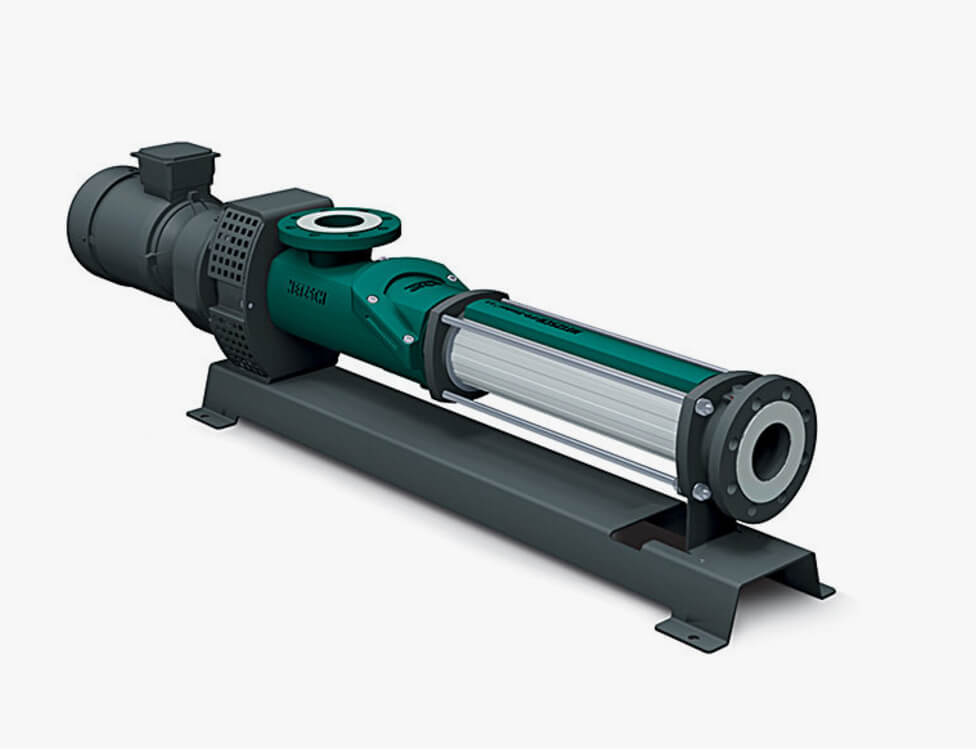Progressive Cavity Pump
When precision, durability, and consistency are critical in moving fluids — from thick sludges to fragile emulsions — many industries in the United States turn to a specialized piece of equipment: the progressive cavity pump. If you work in water treatment, food processing, oil and gas, or chemical manufacturing, understanding what a progressive cavity pump is could help you solve pumping problems that other systems can’t handle. This guide breaks down everything you need to know — from how it works to where it’s used, and how to choose the right one — so you can make informed, confident decisions that support efficiency and uptime.
Defining the Progressive Cavity Pump: What Makes It Unique

A progressive cavity pump (PC pump) is a type of positive displacement pump designed to move fluids through sealed, rotating cavities. It operates by trapping fluid in small chambers and progressively pushing it through the pump as the rotor turns. This mechanism delivers a steady, low-pulsation flow ideal for viscous, abrasive, or shear-sensitive materials.
At its core, the pump consists of a helical metal rotor turning inside a double-helix rubber stator. As the rotor spins, cavities open and move fluid from the suction end to the discharge port — a design often referred to as under cavity transfer.
Why It Matters: Common Problems Progressive Cavity Pumps Solve
PC pumps are specifically engineered to handle challenging fluids that damage or clog other pump types. U.S. manufacturers and operators often rely on them for:
- Thick sludges in municipal wastewater treatment
- Chemical dosing in industrial processing
- Delicate fluids in cosmetics and pharmaceuticals
- Heavy slurries in mining or construction
- Food-grade pumping of sauces, pastes, and dairy
Where centrifugal pumps fail due to shear, cavitation, or clogging, progressive cavity pumps deliver consistent performance with minimal disruption.
How a Progressive Cavity Pump Works
Understanding the mechanism is key to proper selection and application:
- Rotor Rotation
A metal rotor, shaped like a single helix, turns inside a rubber stator with a double-helix shape. - Cavity Formation
This rotation creates sealed cavities that form, shift forward, and disappear as the rotor turns — effectively trapping and moving fluid. - Uniform Flow
Because the cavities move continuously and maintain their seal, the flow is smooth, volumetrically consistent, and non-pulsating.
This makes PC pumps highly reliable for dosing applications, long-distance pumping, and systems that require flow rate precision.
Key Components and Materials
Each element of a progressive cavity pump plays a critical role:
- Rotor – Typically made of stainless steel or chrome-plated alloys; precision-machined for smooth cavity movement.
- Stator – Made from elastomers like EPDM, nitrile, or Viton depending on chemical resistance needs.
- Coupling Rod – Transfers torque from the drive to the rotor.
- Pump Housing – Contains the suction/discharge ports and supports structural integrity.
- Mechanical Seals or Packing – Prevent leakage and protect against wear.
The choice of materials must align with your fluid properties, such as temperature, abrasiveness, and chemical reactivity.
Where Are Progressive Cavity Pumps Used in the U.S.?
These pumps are a go-to solution across a wide range of industries:
Wastewater Treatment
Used to transport thick sludge, scum, and biosolids — especially where solids content or viscosity would jam other pumps.
Oil & Gas
In upstream and midstream sectors, PC pumps are used for transferring drilling fluids, oil-water mixtures, and chemicals.
Food & Beverage
Perfect for transferring yogurt, ketchup, peanut butter, or fruit puree without damaging product integrity.
Chemical & Pharmaceutical
Used for precision metering of aggressive or viscous chemicals — ensuring flow accuracy and safety.
Construction & Mining
PC pumps handle cement grouts, bentonite, and mine tailings — providing durability under harsh conditions.
Advantages That Set Progressive Cavity Pumps Apart
✅ Handles Viscous, Abrasive, or Solid-Loaded Fluids
From gritty wastewater sludge to shear-sensitive liquids, PC pumps manage tough jobs with minimal wear.
✅ Delivers a Smooth, Consistent Flow
Unlike centrifugal pumps, there’s no pulsing — perfect for dosing, metering, or maintaining stable flow in processing systems.
✅ Self-Priming and Reversible
PC pumps can lift fluids vertically and run in reverse if needed — reducing system complexity.
✅ Excellent for Low-Shear Applications
Protects product quality in food, biotech, and cosmetic industries.
Key Limitations to Know
Even the best system has its challenges. Progressive cavity pumps are not ideal for every situation:
- Stator wear increases with high pressure or dry running
- Limited pressure range compared to piston or gear pumps
- Longer footprint — they can be bulky in compact installations
- Maintenance is required more frequently when pumping abrasive media
However, with proper sizing and materials selection, most of these issues can be minimized or avoided.
How to Choose the Right Progressive Cavity Pump
Choosing the correct PC pump for your facility requires a clear understanding of fluid characteristics, system design, and operational goals. Here’s what U.S. plant managers and engineers should consider:
Evaluate the Fluid:
- Viscosity
- Temperature
- Abrasiveness
- Chemical compatibility
Determine Operational Parameters:
- Flow rate (GPM)
- Pressure (PSI)
- Duty cycle (continuous or intermittent)
Check Facility Constraints:
- Available space
- Power source compatibility
- Cleanability (e.g., does it require CIP?)
Select by Manufacturer and Support:
Look for well-known U.S. manufacturers like:
- Seepex
- Netzsch
- Moyno
- Liberty Process Equipment
Choose a brand with nationwide service, spare parts access, and application engineering support.
Case Study: A Real-World U.S. Success Story
In 2022, a municipal wastewater plant in Texas switched from centrifugal to progressive cavity pumps to handle 6% solid sludge. The results:
- 37% reduction in unplanned maintenance
- Increased throughput by 18%
- Annual savings of $22,000 in energy and parts
Operators also cited better performance during cold starts and lower risk of clogging during high-volume flow events.
Best Practices for Operation and Maintenance
To get the most out of your pump:
- Avoid dry running — install dry-run protection
- Regularly inspect rotor and stator wear
- Flush after use when pumping chemicals or sticky fluids
- Use correct torque settings during assembly to prevent elastomer damage
- Maintain a spare parts inventory for quick repairs
Proper maintenance ensures optimal performance and avoids downtime in critical systems.
The Bottom Line
A progressive cavity pump is far more than a niche product — it’s a powerful, reliable solution for fluid handling challenges that other pumps can’t solve. With its ability to manage viscous, abrasive, or delicate fluids, maintain a pulse-free flow, and operate reliably under demanding conditions, it remains a top choice in U.S. industries like water treatment, energy, manufacturing, and food production.
If you’re facing issues with clogging, shear damage, or inconsistent flow, it’s time to look at the long-term efficiency and performance of progressive cavity pumps. Backed by proven results, trusted manufacturers, and a wide range of configurations, they offer both the engineering reliability and operational peace of mind modern facilities demand.

